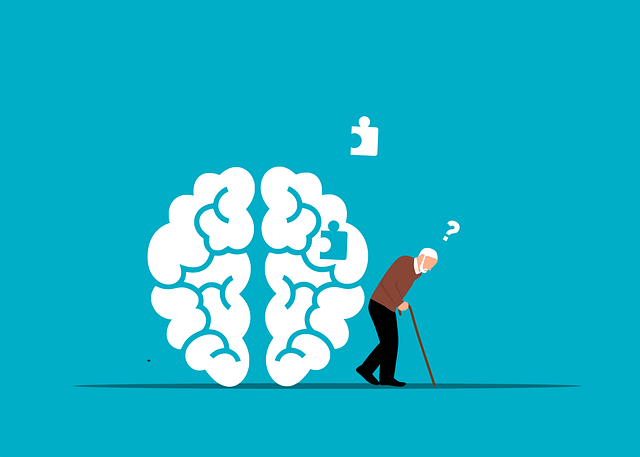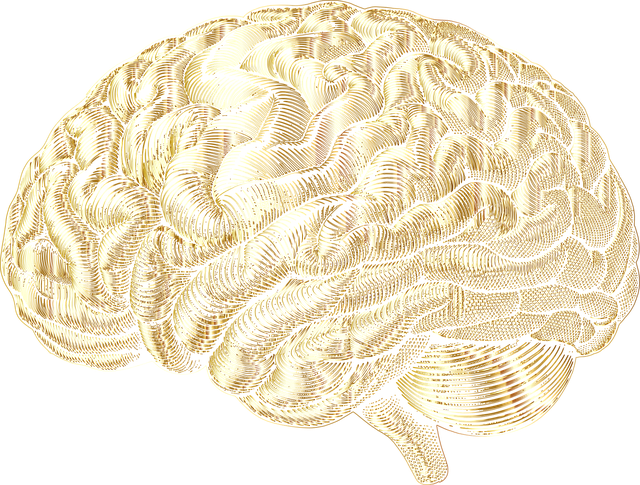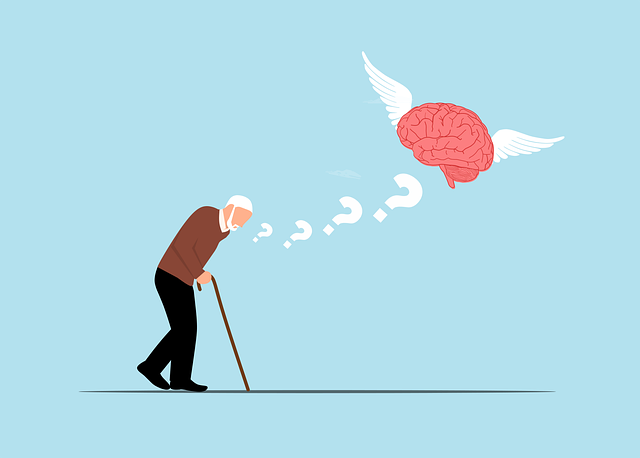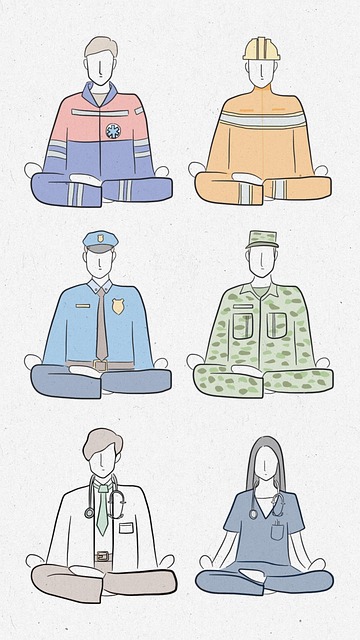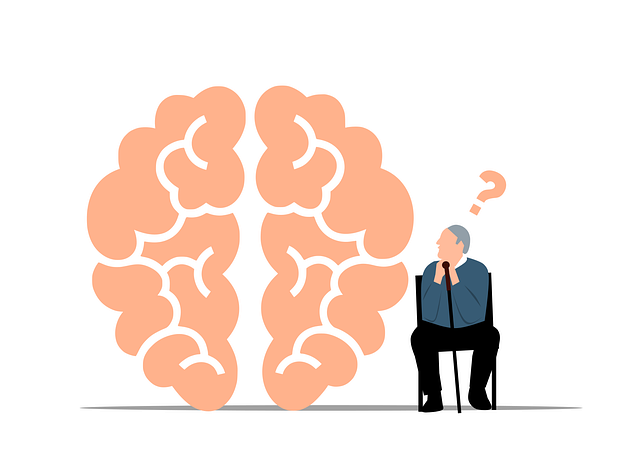Lakewood ADD-ADHD Therapy offers a specialized, comprehensive approach to managing Attention Deficit Disorder (ADD) and Attention Deficit Hyperactivity Disorder (ADHD), combining individual therapy, group support, and educational workshops. Their RFM framework fosters resilience by teaching resource identification, adaptability, emotional control, effective decision-making, and coping mechanisms through journaling and communication strategies. This evidence-based program enhances focus, impulse control, and overall well-being while addressing co-occurring conditions sensitively, emphasizing the importance of building mental fortitude for healthcare professionals to prevent burnout.
“Resilience is a powerful tool for individuals with Attention Deficit Disorder (ADD) and Attention Deficit Hyperactivity Disorder (ADHD), offering a path to better focus, self-regulation, and overall well-being. This article explores the innovative approach of RFM (Resilience, Focus, Motivation) and its impact on resilience building through exercises tailored for ADD-ADHD individuals. We delve into the benefits of Lakewood ADD-ADHD Therapy, providing an in-depth overview of their methods. From understanding RFM’s core principles to real-life success stories, discover how these exercises can transform lives.”
- Understanding RFM and Its Role in Resilience Building
- The Impact of Resilience Exercises on ADD-ADHD Individuals
- Lakewood ADD-ADHD Therapy: An Overview
- Designing Effective Resilience Building Workouts
- Real-Life Success Stories: RFM in Action at Lakewood
Understanding RFM and Its Role in Resilience Building

Resilience is a vital asset in navigating life’s challenges and stressors, and RFM (Resourcefulness, Flexibility, and Mastery) is a powerful framework to cultivate this strength. This concept, often explored in Lakewood ADD-ADHD therapy, focuses on developing individuals’ ability to adapt, cope, and thrive amidst adversity. By fostering resourcefulness, one learns to identify and leverage available resources, be it personal skills, social connections, or external support systems.
The RFM model encourages flexibility, enabling people to embrace change and adjust their strategies when faced with obstacles. It promotes a growth mindset, where setbacks are seen as opportunities for learning and development. Additionally, the aspect of mastery involves gaining control over one’s emotions and behaviors, leading to improved decision-making and problem-solving abilities. Incorporating mental wellness journaling exercises and communication strategies can enhance this process, allowing individuals to reflect on their experiences, express their feelings, and develop effective coping mechanisms while preventing burnout.
The Impact of Resilience Exercises on ADD-ADHD Individuals

Lakewood ADD-ADHD Therapy: An Overview

Lakewood ADD-ADHD Therapy offers a specialized approach to supporting individuals with Attention Deficit Disorder (ADD) or Attention Deficit Hyperactivity Disorder (ADHD). This therapeutic setting recognizes the unique challenges faced by those diagnosed, focusing on evidence-based practices to enhance focus, impulse control, and emotional regulation. The process involves tailored interventions designed to improve daily functioning and overall quality of life.
Through a combination of individual therapy, group support, and educational workshops, Lakewood ADD-ADHD Therapy fosters an environment that promotes understanding and resilience. Emotional healing processes are at the core, addressing co-occurring conditions such as anxiety and depression prevention. Healthcare provider cultural competency training is also integrated, ensuring culturally sensitive care tailored to each client’s background.
Designing Effective Resilience Building Workouts

Designing Effective Resilience Building Workouts
Resilience is a crucial component of overall well-being, especially in high-pressure environments like healthcare. At Lakewood ADD-ADHD Therapy, we understand that cultivating resilience isn’t just about coping mechanisms; it’s about fostering mental fortitude to navigate life’s challenges. Effective resilience-building workouts should be tailored to the individual, considering their unique needs and stressors. Incorporating a mix of physical exercise, mindfulness practices, and cognitive reframing techniques can significantly enhance an individual’s ability to cope with stress and adversity.
In the context of Burnout Prevention Strategies for Healthcare Providers and Risk Management Planning for Mental Health Professionals, structured workouts should aim to promote self-care while challenging individuals to step out of their comfort zones. Regular engagement in these exercises not only contributes to Stress Management but also fosters a sense of control and empowerment. By integrating evidence-based practices into resilience-building routines, professionals can enhance their mental health and provide better care for their patients.
Real-Life Success Stories: RFM in Action at Lakewood

At Lakewood, a small but vibrant community known for its resilience and tight-knit relationships, the implementation of RFM (Resilience, Flexibility, and Mindfulness) exercises has yielded remarkable results in the realm of mental health support, specifically for individuals with ADD/ADHD. This innovative approach to therapy has not only enhanced the well-being of the residents but also served as a powerful example for other communities looking to boost emotional intelligence and overall mental resilience.
The success story of Lakewood’s ADD-ADHD Therapy program is a testament to the power of Public Awareness Campaigns Development focused on Mental Health Awareness. Through targeted initiatives that encourage open conversations about mental health struggles, the community has fostered an environment where individuals feel supported and empowered to manage their conditions effectively. This holistic approach, intertwining resilience building exercises with regular therapy sessions, has led to improved focus, better coping mechanisms, and increased emotional stability among participants. The positive impact extends beyond the individuals directly involved, as it contributes to a broader culture of emotional literacy and understanding within the community.
Resilience is a powerful tool for individuals with ADD-ADHD, and the RFM (Resilience, Flexibility, and Mindfulness) approach has proven to be an innovative method in Lakewood ADD-ADHD therapy. By incorporating resilience building exercises into their routine, individuals can develop essential skills to navigate challenges and improve overall well-being. The success stories shared highlight the transformative power of RFM, offering a promising path towards enhanced focus, self-regulation, and a more fulfilling life for those who struggle with attention-related disorders.
